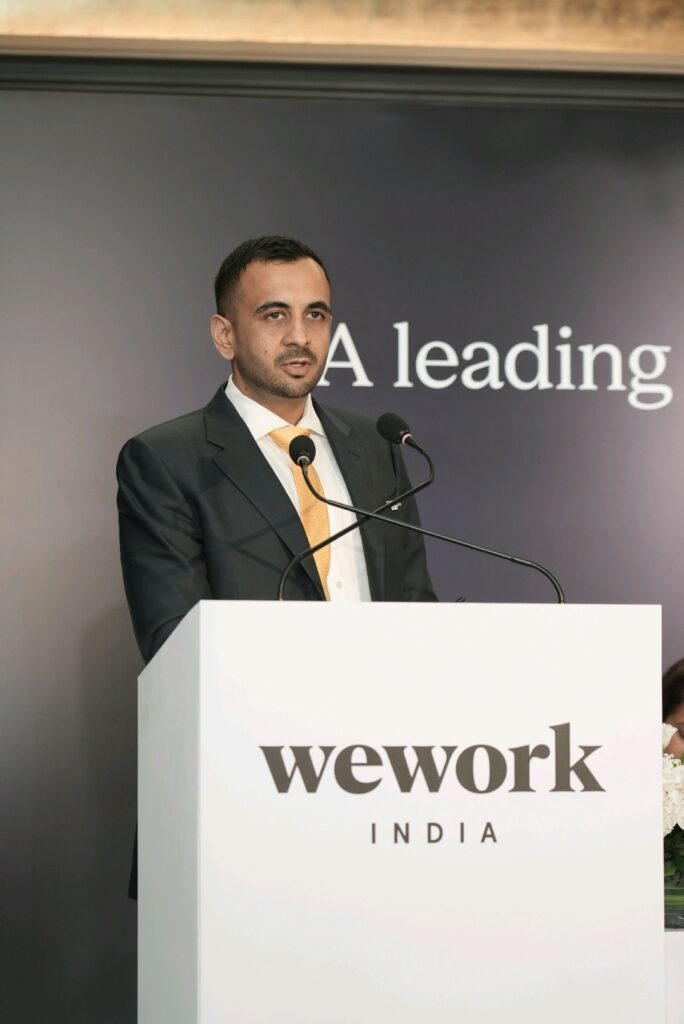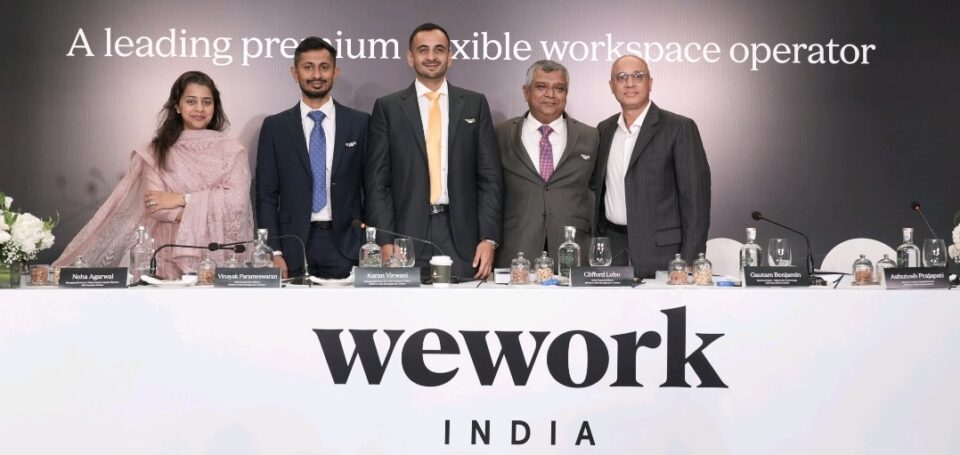WeWork India’s IPO: A Customer Experience Revolution on the Brink of Capital Markets
What happens when a workspace company transforms from a startup-centric brand into an enterprise-focused powerhouse, then decides to go public? WeWork India’s upcoming IPO offers more than just investment opportunities. Moreover, it signals a fundamental shift in how customer experience drives business valuation.
The coworking giant’s October IPO announcement arrives at a pivotal moment. Additionally, it comes after the company posted its first-ever profit in FY25. Furthermore, this milestone reflects deeper changes in workplace customer expectations across India.
The Customer-Centric Foundation Behind WeWork’s Success
WeWork India didn’t accidentally stumble into profitability. Instead, the company systematically rebuilt its customer experience strategy around enterprise needs. Consequently, this transformation tells a compelling story about customer centricity driving financial performance.
The numbers reveal this strategic evolution clearly. Specifically, enterprise clients now generate 60% of WeWork India’s revenue. Meanwhile, membership revenue climbed 48.9% to ₹1,402.5 crore in FY24. Additionally, average revenue per member increased from ₹17,096 to ₹19,842 between FY23-FY25.
These metrics demonstrate something crucial about modern customer experience. Namely, companies that understand their customers’ evolving needs create sustainable competitive advantages. Furthermore, they position themselves for public market success.
Breaking the Startup-Only Perception
WeWork India faced a classic customer experience challenge. Specifically, market perception didn’t match their actual offerings. The brand was seen primarily as a startup hub. However, reality showed enterprise clients increasingly choosing flexible workspaces.
The company addressed this through their “Your Office, Your Way” campaign. This initiative bridged perception gaps by showcasing enterprise capabilities. Moreover, it demonstrated how customer experience starts with understanding misconceptions.
Debosmita Majumder, WeWork India’s Chief Marketing Officer, explained the strategy: “As the needs of corporate India have evolved, enterprises and Fortune 500 companies are now seeking flexible real estate solutions”. Additionally, the campaign used relatable office scenarios to connect with diverse audiences.
The Enterprise Customer Experience Revolution
Traditional office leasing often frustrates corporate customers. Long-term commitments, inflexible terms, and limited customization create pain points. Conversely, WeWork India designed solutions addressing these specific challenges.
Their enterprise customer journey focuses on several key touchpoints. First, customizable workspace design that reflects brand identity. Second, flexible terms allowing for easy scaling. Third, comprehensive facility management eliminating operational headaches.
The results speak volumes about customer satisfaction. Specifically, WeWork India maintains one of the most extensive product ranges in the industry. Additionally, their client roster includes Amazon Web Services, JP Morgan, and Grant Thornton.
Technology-Driven Customer Experience
WeWork India leverages technology extensively to enhance customer experience. Their comprehensive app enables members to book conference rooms and report issues. Furthermore, backend infrastructure includes AI-based spatial analytics and sustainability measures.
CEO Karan Virwani emphasizes their digital-first approach: “We are transitioning to a digital-first sales journey”. Additionally, the company launched products like WeWork On Demand and Virtual Office during COVID.
These technological investments create seamless customer interactions. Moreover, they provide data insights that improve service delivery continuously.
The Financial Story: Customer Experience Driving Valuation
WeWork India’s path to profitability illustrates how customer experience impacts financial performance. The company’s revenue grew 17% to ₹1,949.2 crore in FY25. Additionally, EBITDA margins consistently exceeded 60%.
However, the profitability picture requires careful analysis. While the company reported ₹128.2 crore profit in FY25, this largely resulted from deferred tax gains. Nevertheless, core business metrics show improvement. Specifically, revenue-to-rent multiples reached 2.68, outperforming industry benchmarks.
The IPO structure reveals stakeholder confidence levels. The ₹3,000 crore issue comprises entirely an Offer for Sale. This means no fresh capital infusion, suggesting existing shareholders view current valuations favorably.
Market Position and Competitive Advantage
India’s coworking market is projected to reach $2.91 billion by 2030. Within this landscape, WeWork India holds significant advantages. Specifically, they operate 68 centers with 114,077 desk capacity across eight cities.
Their competitive positioning stems from several customer experience factors. First, exclusive WeWork brand licensing provides global network benefits. Second, partnerships with Embassy Group enable Grade A property access. Third, comprehensive service offerings create switching costs for customers.
Member retention becomes crucial in this context. Research shows coworking spaces face significant churn challenges. However, enterprise clients typically demonstrate higher retention rates than individual users.
The Workplace Evolution: Beyond Coworking
WeWork India’s customer experience strategy recognizes fundamental workplace changes. The pandemic accelerated flexible workspace adoption. Additionally, hybrid work models became permanent fixtures for many organizations.
This evolution creates new customer expectations. Employees want wellness-focused amenities and sustainable workspaces. Furthermore, companies seek solutions balancing flexibility with brand identity.
WeWork India addresses these trends proactively. Their spaces feature biophilic design elements and wellness initiatives. Additionally, they offer customization options maintaining brand consistency across locations.
Community and Culture as Customer Differentiators
Successful coworking spaces build communities, not just provide desks. WeWork India understands this principle deeply. Their customer experience strategy emphasizes networking opportunities and collaborative environments.
The company achieved 96% employee satisfaction rates internally. This matters because employee experience directly impacts customer experience. Furthermore, satisfied employees become brand ambassadors within their communities.
Community building also creates business value. Specifically, satisfied members become referral sources and long-term customers. Additionally, strong communities develop reputational advantages in competitive markets.

Technology Integration and Future Customer Experience
WeWork India’s technology roadmap focuses on enhancing customer interactions. Their WeWork Workplace SaaS solution provides workspace management capabilities. Additionally, AI integration optimizes space utilization and energy efficiency.
Future trends suggest even greater technology integration. Virtual reality meeting capabilities and AR-enhanced collaboration tools are emerging. Furthermore, IoT devices will provide personalized environmental controls.
These developments will reshape customer expectations continuously. Companies that anticipate and adapt to technological changes maintain competitive advantages. Moreover, they create switching costs through integrated service ecosystems.
Sustainability and Wellness: Next-Generation Customer Values
Modern customers increasingly prioritize sustainability and wellness. WeWork India responds with green building certifications and wellness-focused amenities. Additionally, they partner with Plum to provide comprehensive health benefits for employees.
These initiatives extend beyond customer attraction to retention. Specifically, employees working in wellness-focused environments show 15% higher productivity. Furthermore, sustainable workspaces align with corporate social responsibility goals.
The IPO Implications: Customer Experience Meets Capital Markets
WeWork India’s IPO timing suggests confidence in their customer experience strategy. The company achieved profitability while maintaining growth. Additionally, they demonstrated pricing power through increased average revenue per member.
However, capital markets will scrutinize sustainability metrics carefully. The deferred tax gains masking operational losses raise questions. Furthermore, the lack of fresh capital suggests limited expansion plans initially.
The broader market context also matters. India’s flexible workspace market shows strong fundamentals. Additionally, government initiatives support startup ecosystems, driving demand.
Investor Considerations: Customer Experience as Value Driver
For potential investors, WeWork India’s customer experience focus offers several insights. First, enterprise customer concentration provides revenue stability. Second, strong unit economics suggest scalable business models.
The competitive landscape remains fragmented. This creates opportunities for well-positioned players to gain market share. Furthermore, WeWork India’s brand recognition provides advantages in enterprise sales cycles.
However, operational leverage questions persist. The company must demonstrate ability to grow profitably without relying on accounting adjustments. Additionally, they need consistent expansion strategies maintaining service quality.
Looking Forward: The Future of Flexible Workspace Customer Experience
WeWork India’s IPO represents more than a single company’s public offering. Instead, it symbolizes the evolution of workplace customer experience in India. The success or failure will influence how other flexible workspace providers approach customer centricity.
Key trends will shape this evolution. First, enterprise customers will demand increasingly sophisticated solutions. Second, technology integration will become table stakes rather than differentiators. Third, sustainability and wellness will influence purchasing decisions more significantly.
WeWork India’s positioning suggests they understand these trends. Their customer experience investments span technology, sustainability, and service quality. Moreover, their enterprise focus aligns with market evolution toward sophisticated buyers.
The IPO’s success will validate whether customer experience strategies translate into public market valuations. Furthermore, it will demonstrate whether Indian investors recognize customer centricity as a value driver.
As WeWork India prepares for its public debut, the company stands at the intersection of customer experience innovation and capital market validation. Their journey from startup-focused coworking provider to enterprise-centric workspace solutions demonstrates the power of customer-driven transformation.
The October IPO will test whether investors recognize this evolution’s value. More importantly, it will establish whether customer experience excellence can drive sustainable public market performance in India’s evolving workspace sector.
For businesses watching WeWork India’s trajectory, the lesson remains clear. Customer experience isn’t just about satisfaction scores or retention rates. Instead, it’s about building business models that create genuine value for customers while generating sustainable returns for stakeholders. WeWork India’s IPO will reveal whether they’ve successfully bridged this crucial gap.

